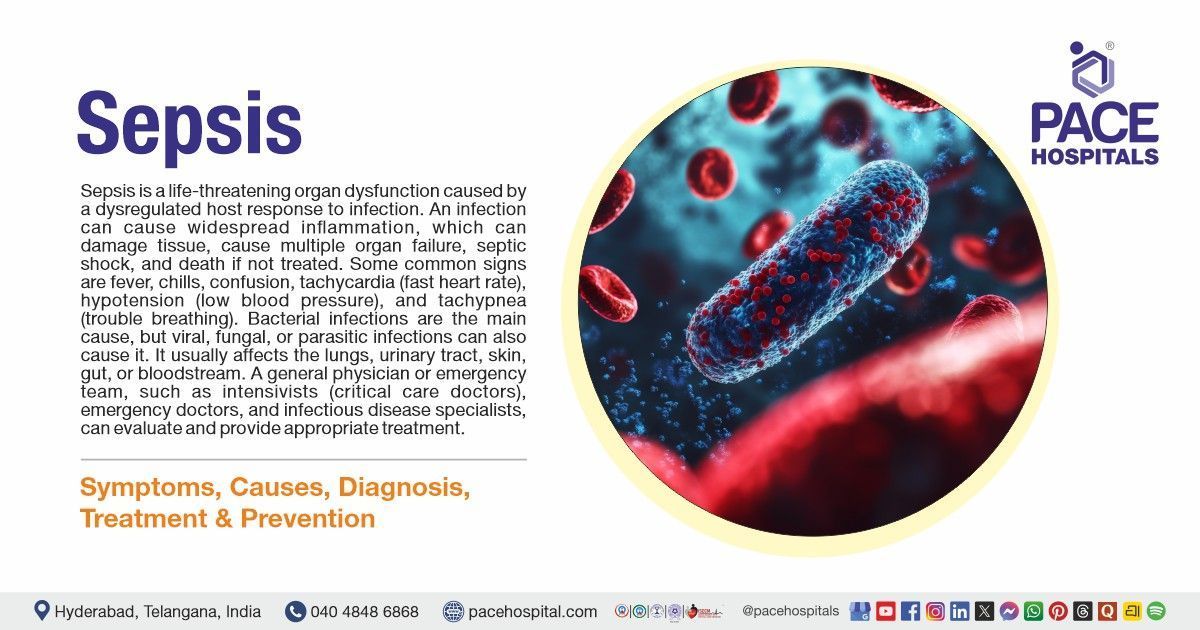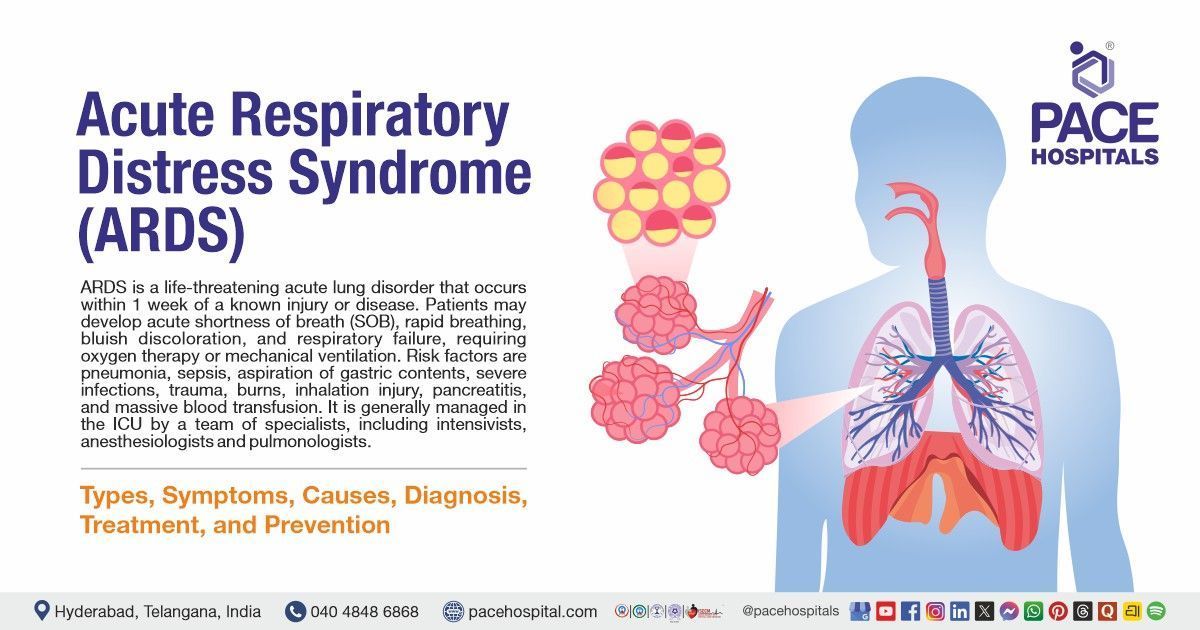Successful Kidney Transplantation in a 29 Y.O. Female from Madagascar
PACE Hospitals
PACE Hospitals' Kidney Transplantation team successfully performed an ABO Incompatible Kidney Transplant on a 29-year-old female from South Africa, who was suffering from chronic kidney disease (CKD Stage 5D) secondary to suspected chronic glomerulonephritis. The aim of the procedure was to restore adequate kidney function, improve her quality of life, and eliminate the need for long-term dialysis.
Chief Complaints
A 29-year-old female patient with a
body mass index (BMI) of 22.1 presented to the Kidney Transplant Department at
PACE Hospitals, Hitech City, Hyderabad, with
Chronic Kidney Disease (CKD) Stage 5 with Dialysis, requiring an ABO-incompatible kidney transplantation.
Past Medical History
The patient had chronic kidney disease diagnosed in 2021, when she was presented with weakness, joint pains, anemia, and was found to have markedly elevated creatinine with a negative autoimmune workup. Her disease progressed to end-stage renal disease, and she had been on maintenance hemodialysis three times a week. She experienced multiple AV fistula failures and required a permacath for dialysis access.
She was a known hypertensive. After arriving in India, she developed a right-sided pleural effusion with fever, which was diagnosed as pleural tuberculosis, for which she received Anti-tubercular Therapy (HRZE) for two months followed by isoniazid and moxifloxacin in the continuation phase.
On Examination
On general examination, the patient showed no pallor, icterus, or pedal edema. Vital signs revealed an abnormal blood pressure and a normal pulse rate. Systemic examination showed normal heart sounds on cardiovascular assessment, normal vesicular breath sounds on respiratory examination, and a soft, normal abdomen on palpation.
Diagnosis
Upon admission to PACE Hospitals, the patient underwent a comprehensive evaluation by the kidney transplant surgeons, including a detailed clinical examination and review of medical history. She presented with end-stage renal disease (CKD Stage 5D) and was planned for an ABO-incompatible living-related kidney transplantation.
Immunological and serological studies, including blood grouping, HLA typing, crossmatch (CDC and flow cytometry), and isoagglutinin titers, were performed. The donor was her father (B+) and the recipient was O+, confirming the need for desensitization prior to transplantation. Anti-B titers were elevated pre-procedure.
Radiological evaluation, including chest X-ray, renal ultrasound, and Doppler studies, showed a stable preoperative status with no contraindications for transplantation. Cardiovascular assessment and ECG findings were within normal limits.
Laboratory investigations revealed anemia and leukopenia. Renal and liver function tests, serum electrolytes, coagulation profile, and other metabolic parameters, including blood sugar, TSH, Vitamin B12, and glycosylated hemoglobin, were within normal limits.
Based on the confirmed findings, the patient was advised to undergo
Chronic kidney disease (CKD Stage 5D) treatment in Hyderabad, India, under the expert care of the Kidney Transplantation team.
Medical Decision Making
After a detailed consultation with a team of kidney transplant surgeons, Dr. A. Kishore Kumar, Dr. Vishwambhar Nath, Dr. Abhik Debnath, and Dr. K Ravichandra, a comprehensive evaluation was performed to determine the most appropriate therapeutic approach.
The patient presented with end-stage renal disease secondary to long-standing hypertension and had been undergoing regular hemodialysis. A living-related donor was identified, but the donor-recipient pair was ABO-incompatible, requiring a tailored pre-transplant desensitization protocol.
Imaging and laboratory evaluations, including renal ultrasonography, echocardiography, and detailed serological testing, were reviewed. Baseline hematological, biochemical, and coagulation parameters were within acceptable limits for transplantation. Infectious screening was negative, and no additional systemic contraindications were identified.
Based on clinical assessment and investigations, it was determined that the patient had chronic kidney disease stage 5, responsible for her symptoms. ABO-incompatible living donor kidney transplantation with pre-transplant desensitization was identified as the most suitable definitive intervention to restore renal function, reduce dependency on dialysis, and improve long-term quality of life.
The patient and family members were thoroughly counselled regarding the complexity of ABO-incompatible kidney transplantation, the desensitization regimen, potential risks including rejection and infection, and the anticipated postoperative course with long-term follow-up.
Surgical Procedure
Following the clinical decision, the patient was scheduled for an ABO Incompatible Kidney transplantation Surgery in Hyderabad at PACE Hospitals, under the expert care of the Kidney Transplant Department.
The procedure involved the following steps:
- Donor Kidney Harvest (Laparoscopic Left Donor Nephrectomy): The left kidney of the father was harvested laparoscopically. Intraoperative findings included a single renal artery, single renal vein, and single ureter. The kidney was flushed and preserved in cold preservation solution before being transferred to the recipient table.
- Recipient Positioning and Right Iliac Fossa Exposure: The recipient was placed in a supine position, and the right lower abdomen (right iliac fossa) was prepped and draped. A right iliac fossa incision was made, and the retroperitoneal space was entered. The external iliac vein and internal iliac artery were carefully dissected, looped, and prepared for anastomosis.
- Venous Anastomosis: The donor renal vein was oriented and positioned in the right iliac fossa. An end-to-side anastomosis was performed between the renal vein and external iliac vein using vascular sutures. Venous clamps were released to confirm good venous outflow and hemostasis.
- Arterial Anastomosis: The donor renal artery was then anastomosed end-to-end or end-to-side to the internal iliac artery, as documented. After completion, the arterial clamps were released, allowing graft perfusion. The kidney was observed for pink color, turgor, and immediate urine output, indicating adequate perfusion.
- Ureteric Implantation: The donor ureter was tunneled to the bladder, and a ureterovesical anastomosis was performed using an anterior extravesical, non-refluxing technique (modified Lich–Gregoir). A Pandey stitch was placed at the apex of the anastomosis to create a submucosal tunnel and prevent reflux. A DJ stent was inserted for later removal, as per the discharge plan.
- Hemostasis, Drain, and Wound Closure: The graft position in the right iliac fossa was confirmed, and hemostasis was ensured. A drain was placed near the graft as required. The abdominal wall and skin were closed in layers.
Postoperative Care
The patient’s postoperative period was uneventful. She was monitored in the Intensive Care Unit (ICU) with strict fluid balance and urine output. Immediate urine output indicated good graft function, and Doppler on day 2 showed normal velocities and resistive indices. Immunosuppression with a calcineurin inhibitor, antimetabolite, and corticosteroids was maintained, with calcineurin inhibitor dose adjusted to therapeutic levels at discharge.
Intravenous broad-spectrum antibiotic prophylaxis was given for six days. Foley catheter and drain were removed on day 5, and the wound was healthy. Serum creatinine reached 0.9 mg/dL by day 5. The patient was discharged stable on day 6 with follow-up advised in three days.
Discharge Medications
Upon discharge, the patient was prescribed a corticosteroid for immunosuppression, an antimetabolite for graft protection, and a calcineurin inhibitor to maintain therapeutic immunosuppressive levels. She was also prescribed a combination antibiotic and antiviral prophylaxis to prevent infections, along with an antifungal agent for fungal prophylaxis. Calcium and vitamin D supplementation were continued for bone health, and antihypertensive medications, including a calcium channel blocker and a beta-blocker, were prescribed for blood pressure control. Additionally, she was given gastroprotective therapy, hematinic supplementation, and anti-tuberculosis therapy as per prior history. Analgesics were advised for symptomatic pain relief.
Advice on Discharge
The patient was advised to monitor blood sugar levels fasting, before dinner, and at 4 pm, maintaining a detailed record. She was also instructed to chart daily fluid intake and output and to drink plenty of water. Dietary recommendations included taking a high-protein renal supplement twice daily for two weeks and avoiding raw fruits, packaged foods, and stored foods to reduce the risk of infection and support optimal kidney function.
Emergency Care
The patient was informed to contact the emergency ward at PACE Hospitals in case of any emergency or development of symptoms such as Fever, Abdomen Pain, Vomiting’s and Chest pain.
Review and Follow-up Notes
The patient was advised to return for a follow-up visit with the Kidney Transplant Surgeons in Hyderabad at PACE Hospitals with prior appointment, including review of recent lab reports. Further testing, including complete blood count, renal function tests, and tacrolimus levels, is scheduled before the visit. A subsequent review is planned after one week for stent removal, with all relevant reports, including urine culture and sensitivity, CBP, and RFT, to be brought for evaluation.
Conclusion
This case highlights a young patient with CKD stage 5 on dialysis and hypertension who successfully underwent an ABO-incompatible, live-related renal transplant following effective desensitisation. Supported by PACE Hospitals’ 92% kidney transplant success rate, the patient achieved excellent graft function, with serum creatinine stabilizing at 0.9 mg/dL. Post-transplant cytopenias, likely drug-induced, improved with appropriate management. She was discharged in stable condition on immunosuppressive therapy and prophylaxis, with close follow-up planned.
Optimizing Outcomes After Kidney Transplantation
ABO-incompatible kidney transplantation requires careful pre-transplant desensitization, including plasma exchange and immunosuppressive therapy, to reduce antibody-mediated rejection. Close monitoring of blood counts, tacrolimus levels, and graft function is essential to prevent complications. Early detection of infections, bleeding, or drug-related cytopenias ensures timely intervention. Postoperative care focuses on medication adherence, dietary precautions, and regular lab follow-ups. Patient education and routine review with a
Kidney Transplant Doctor/Specialist significantly improve outcomes. Multidisciplinary coordination among healthcare teams is crucial for successful graft survival and long-term recovery.
Share on
Request an appointment
Fill in the appointment form or call us instantly to book a confirmed appointment with our super specialist at 04048486868











